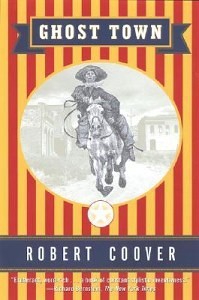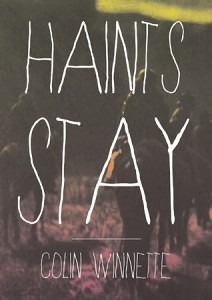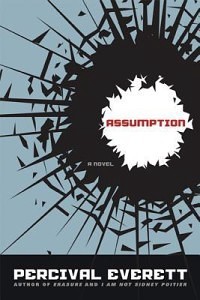Books & Culture
Sunset and Sunrise on Bleak Horizons: The State of the Revisionist Western

Are we in the midst of a revisionist Western novel revival? Patrick deWitt’s 2012 The Sisters Brothers earned its fair share of acclaim, including a win at The Morning News’s Tournament of Books and a place on the Man Booker Prize shortlist. This year, Colin Winnette’s Haints Stay has earned glowing reviews; its surreal story of two brothers and the wake of violence that they leave behind is a striking and powerful one. In 2008, Rudolph Wurlitzer, no stranger to the surreal and revisionist Western, released his first novel in decades, The Drop Edge of Yonder. And plenty of Brian Evenson’s novels and short stories tap into a wellspring of Western archetypes, shifting them into stories of obsession, madness, and isolation.

Call it the zeitgeist, then: revisionist Westerns are having a proper literary moment. Except that it’s been over thirty years since Cormac McCarthy’s Blood Meridian, which looms massively over the notion of the revisionist Western, was first published. Alternately: a writer who was born on the day that Blood Meridian was published might be well sitting at their keyboard, hard at work on a stunning revisionist Western of their own.
Even though Blood Meridian occupies an almost celestial position in this corner of literature, it was far from the first novel to deconstruct archetypes. Wurlitzer was doing it in the late 1960s and early 1970s, with books like Nog and Flats. And even before that, Oakley Hall’s Warlock (1958) and John Williams’s Butcher’s Crossing (1960) took less experimental approaches, but still worked with a knowing awareness of what, exactly, readers might expect from a Western narrative, and worked actively to subvert it. Alternately: revisionist Westerns have been on the scene for over fifty years. When, exactly, do the revisionists declare victory?
Robert Coover’s 1998 novel Ghost Town serves as one sign of where this tendency can go. Its opening sentences are both magnificently evocative and deeply aware of the imagery with which Coover is about grapple.
Bleak horizon under a glazed sky, flat desert, clumps of sage, scrub, distant
butte, lone rider. This is a land of sand, dry rocks, and dead things. Buzzard
country. And he is migrating through it.
Coover’s everyman protagonist finds himself in a town where he’ll come to inhabit several roles, from archetypal lawman to archetypal outlaw. Not surprisingly, he’ll also find himself beguiled romantically by two women who seem to occupy similarly disparate roles, the “bad” and the “good.” And so the novel continues on, setting its protagonist through a series of stock scenarios in which he encounters criminals, townspeople, and deputies, each of whom seem slightly more aware of the ground rules of the genre in which they’re all players.

Coover is aware of the fictional territory he’s referencing, but he’s also aware that he’s writing for an audience that’s aware of the tropes and tricks of the genre. He’s aware that his readers know what to expect, and winks at them by skipping past certain events. One section opens, “A lot of things happen and then he’s alone and forsaken on the desert again…” Some revisionist Westerns can be embraced by those who enjoy more traditional Westerns as well, but Ghost Town reads more like a critique, a remix in which the original text is virtually unrecognizable. There are moments of adventure, comedy, and brutal violence found throughout the novel; the protagonist’s deputy in particular meets a horrific fate. But they’re all used in the service of a critique, as though all of the tools and tropes used by hundreds of writers were laid bare, then reassembled to perform one last time, all strings and sets visible for all to see.
Colin Winnette’s Haints Stay generates a fair amount of friction from pushing the genre into uncomfortable territory, though it never quite turns metafictional. On paper, it might read somewhat similarly to deWitt’s The Sisters Brothers–both follow the (mis)adventures of a pair of brothers who work as killers for hire and engage in various acts of antiheroic behavior. In tone, though, they vary wildly: deWitt’s novel allows for moments of bleak humor and self-awareness; Winnette’s is equally compelling, but finds itself in unexpected places. Much of that comes from Brooke and Sugar–both their current dynamic and (shown via flashbacks) their relationship to their father, which goes beyond the stereotypical “abuse from a violent man” concept and pushes forward into something even more unsettling. It’s a matter that Winnette slowly reveals over the course of the book; without revealing too much, there are scenes that suggest a Western as reimagined through the transgressive lens of Dennis Cooper.
What Winnette does here is less about undermining the traditions of the Westerns and more about pushing them in unexpected directions: plugging in characters who don’t necessarily mesh with a reader’s expectation of what a hired killer in a Western would be like. (In this context, it also fits neatly beside Winnette’s previous book, the short novel Coyote, in which characters dealing with a familiar fictional situation take the plot in a radically different direction.) That doesn’t mean Winnette is above commenting on genre, though. A reference to “house wines” seems intentionally anachronistic: though the novel appears to be set in the past, it’s never entirely clear when; there are shades of the Alex Cox-directed film Walker here, where elements of the present seem to have embedded themselves in history. Walker, it should be noted, has a screenplay written by one Rudolph Wurlitzer.

Sometimes Winnette’s exploration of genre takes on a more philosophical tone. “What purpose do killers serve in a town that’s already dying?” Sugar asks early in the novel, and that questioning mood suffuses much of what follows. Dreamlike in its tone from the outset, Haints Stay becomes even more so as it reaches its conclusion: hidden identities are revealed; a sense of surrender pervades the novel as notions of identity slip away and blur. And the book’s final sentence shifts things from the Western realm to an even deeper strain of American literature, magnifying the subversion even more as it nods in the direction of an iconic final sentence.
That maneuver on Winnette’s part is an interesting one, making Haints Stay’s claim to revisionism extend beyond the bounds of one genre and suggesting that it permeates a wider literary field. It’s a kind of blendedness, a shifting from genre to genre, or an act of reclamation applied to certain works and styles. Either way, it serves as an intriguing spark, a push beyond certain expectations that readers might have. And, perhaps, it’s an acknowledgement of the cyclical nature of revisionist Westerns: they come in waves, even as more traditional works set in desert landscapes and charting out historical frontiers still endure.
One could also look at a certain cinematic strain from the early ’90s as bearing some influence here. In a handful of years, the films Unforgiven and Dances With Wolves were critical and commercial successes, each picking apart certain Western archetypes; less widely-seen, but no less determined to dismantle viewer expectations, were Clint Eastwood’s A Perfect World and Mario Van Peebles’s Posse. It was a brief moment out of which think pieces could be born–but it echoed a similar cultural moment in the ’70s, when films like Robert Altman’s McCabe and Mrs. Miller, with its haunting use of Leonard Cohen songs, dug their way into the psyche of many a moviegoer. Perhaps each generation needs to dismantle the Western edifice, even if no one’s bothered to fix it up since the last time it was broken down.
Perhaps it’s this cycle that also keeps the idea of the revisionist Western leaping from medium to medium, exhausting itself in one form and moving on to the next. Consider Leigh Stein’s “June 14, 1848,” perhaps the greatest poem to have been inspired by an early computer game. (Specifically, Oregon Trail.) Inspiration can transport the Western setting into virtually any medium; in the hands of a talented writer, it can yield memorable and unsettling work. Arguably the most rare revisionist work is one that can work on the levels that Coover and Winnette, respectively, work on: the structural and the traditional.

It can, however, be done. Take, for example, Percival Everett’s Assumption. It’s set in the present day, but the fact that it focuses on a lawman in New Mexico places it in squarely in Western territory. But what makes this book–theoretically, a collection of three related novellas–so powerful is the way that it bait-and-switches expectations and archetypes. Ogden Walker, the protagonist, is set up as a kind of stark lawman, world-weary and haunted by his past. And gradually, all of the expectations that the reader has about where this character will go are upended. Through meticulously precise prose, Everett creates a world where all that we rely on for guidance tends to fail us. By the end of the book, any kind of trust we’ve put in the book’s structure has fallen apart, and the uncertainty faced by its protagonist is mirrored by the haunting, howling vortex that overtakes the experience of reading the book. It’s magnificently disorienting–a work that offers a familiar narrative but reveals something much more terrifying. Approaching the Western, it seems, is like peeling back paint on a familiar structure, only to find that it’s gone hollow and rotted. You can either curse the decay or turn it into something magnificent in its own right.








